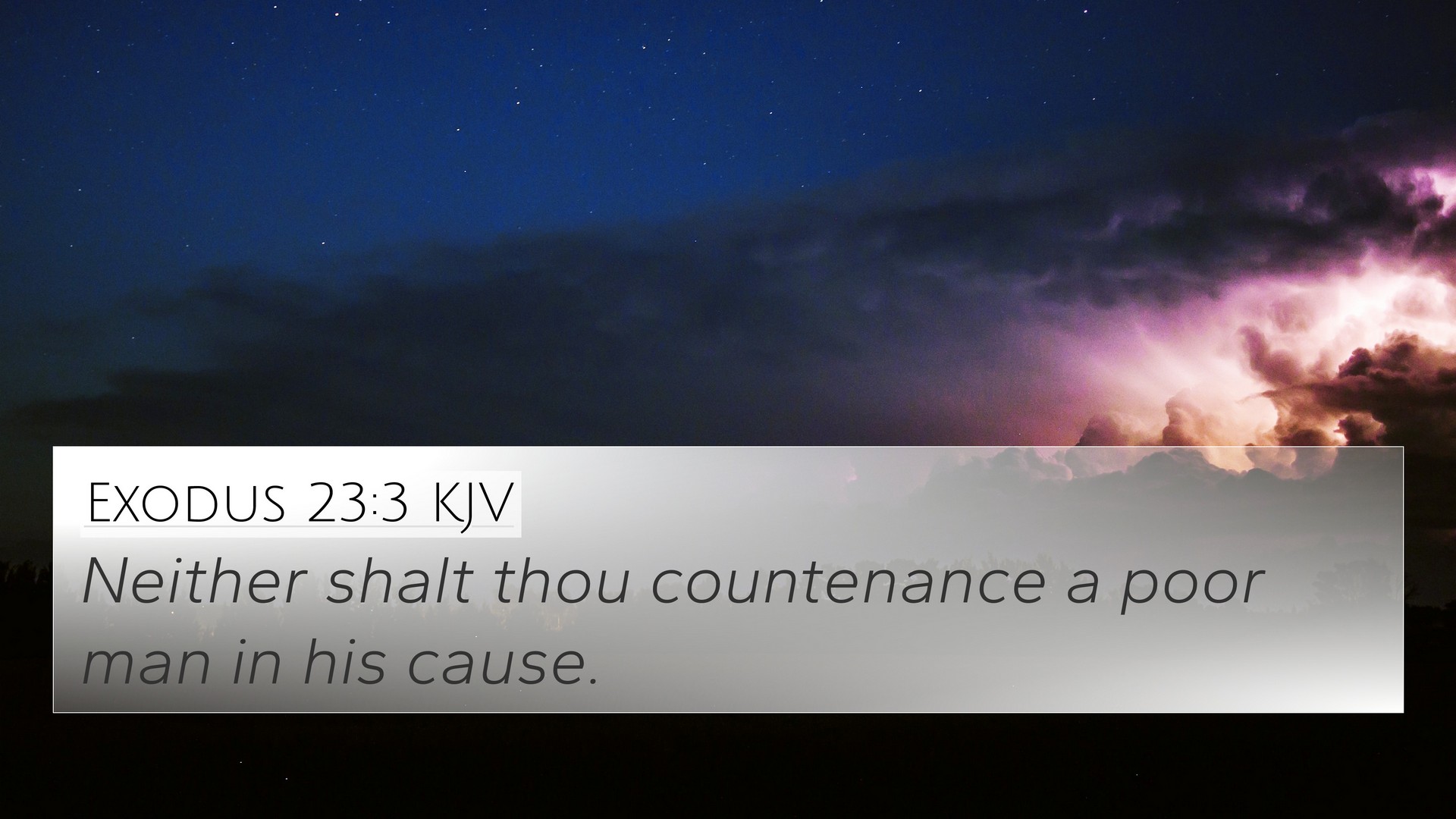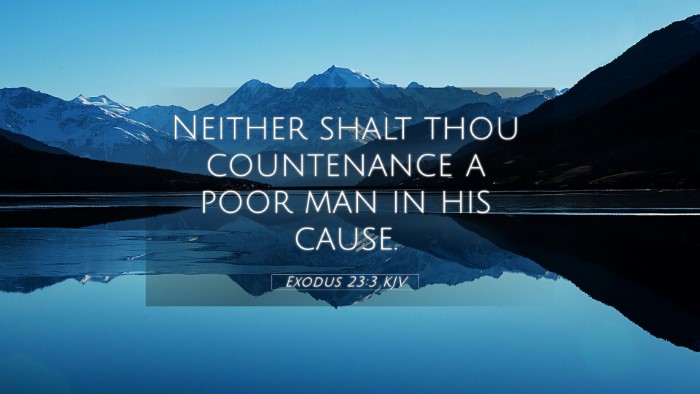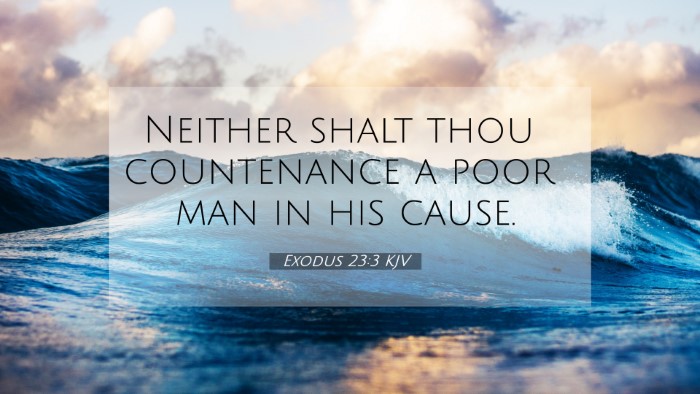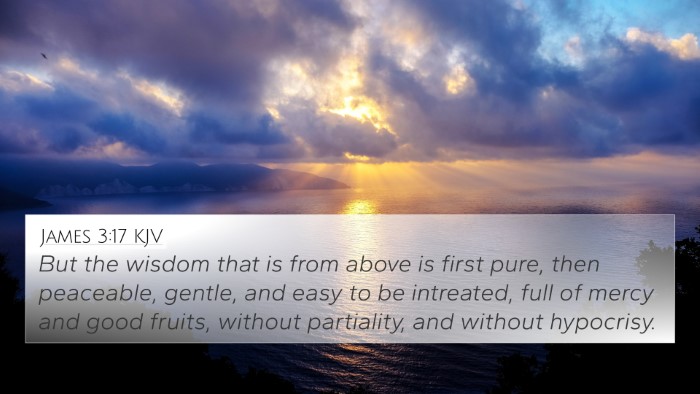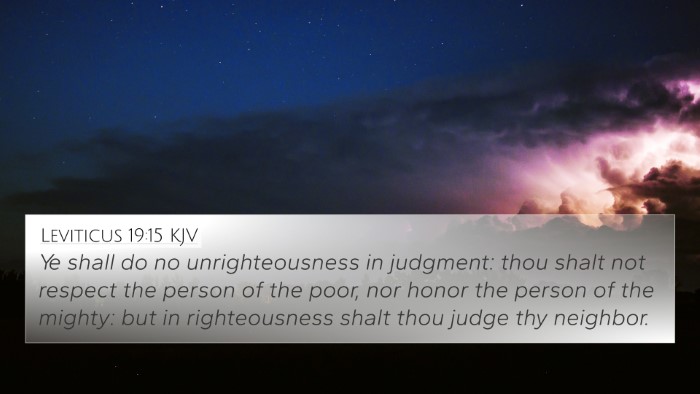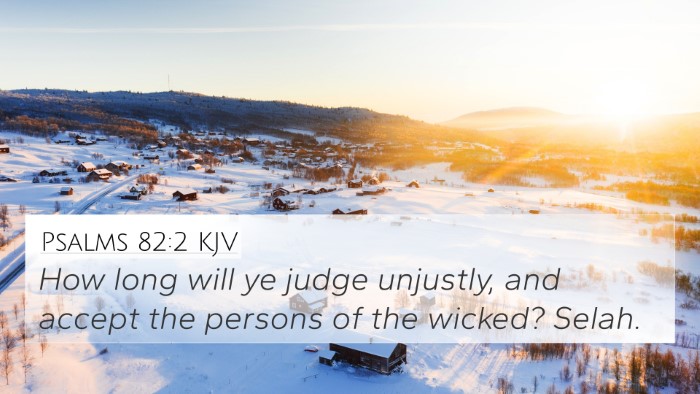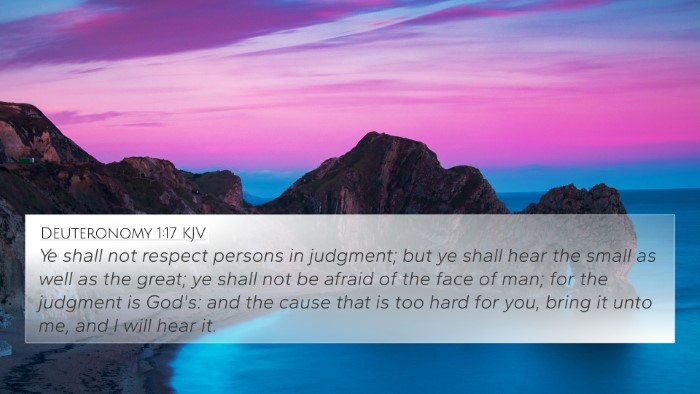Understanding Exodus 23:3
Exodus 23:3 states: “Neither shalt thou countenance a poor man in his cause.” This verse serves as a moral guideline concerning the treatment of the less fortunate within the judicial system.
Summary of Meaning
This verse emphasizes the principle of impartiality in judgment. It cautions against the bias that can arise from sympathy towards the poor, prompting judges and decision-makers to remain fair and just. In the context of ancient Israel, where social hierarchies were well-defined, this directive was crucial for fostering an equitable society.
Commentary Insights
-
Matthew Henry: Henry notes that while compassion for the poor is important, it should not compromise justice. He highlights that favoritism, even towards the disadvantaged, can distort the truth and undermine the integrity of the legal process.
-
Albert Barnes: Barnes sees this command as a reminder that all persons deserve fair treatment, regardless of their socioeconomic status. He urges that the courts should provide an equal platform, stressing that the wealth or poverty of an individual does not determine the validity of their claim or cause.
-
Adam Clarke: Clarke interprets this verse as a caution against bias based on pity. He points out that just because a person is poor does not inherently make their case true or more valid. Justice must be blinded to status and remain focused on the facts at hand.
Cross-References
This verse connects to several other passages that outline similar themes of justice and impartiality in legal and moral contexts.
- Leviticus 19:15 - “Ye shall do no unrighteousness in judgment: thou shalt not respect the person of the poor, nor honor the person of the mighty: but in righteousness shalt thou judge thy neighbor.”
- Deuteronomy 1:17 - “Ye shall not respect persons in judgment; but ye shall hear the small as well as the great; ye shall not be afraid of the face of man; for the judgment is God's.”
- Proverbs 22:2 - “The rich and poor meet together: the Lord is the maker of them all.”
- James 2:1-4 - “My brethren, have not the faith of our Lord Jesus Christ, the Lord of glory, with respect of persons... For if there come unto your assembly a man with a gold ring, in goodly apparel, and there come in also a poor man in vile raiment...”
- Proverbs 24:23 - “These things also belong to the wise. It is not good to have respect of persons in judgment.”
- Micah 6:8 - “He hath shown thee, O man, what is good; and what doth the Lord require of thee, but to do justly, and to love mercy, and to walk humbly with thy God?”
- Acts 10:34 - “Then Peter opened his mouth, and said, Of a truth I perceive that God is no respecter of persons.”
Thematic Connections
Exodus 23:3 forms part of a larger discourse on justice in the Bible, underlining key themes such as:
- Impartiality - Consistently throughout scripture, the Lord calls for fairness, not allowing wealth or poverty to sway decisions.
- Justice - The foundational principle of divine justice which is echoed in both the Old and New Testaments.
- Mercy - Providing help to the needy should be in line with justice, maintaining the balance between kindness and fairness.
Inter-Biblical Insights
Understanding Exodus 23:3 requires exploring its implications not just in its immediate context but across the entirety of scripture. Key insights include:
- Identifying connections with Jesus' teachings on wealth and poverty in the Gospels, particularly in the Sermon on the Mount.
- Exploring parallels in Pauline epistles where social inequalities are discussed, promoting unity within diversity in Christ.
- Considering the prophetic calls for justice found in the writings of the minor prophets, reinforcing the message of impartiality.
Cross-Referencing Tools and Resources
For deeper study and understanding, utilizing tools for bible cross-referencing can be invaluable. Resources such as:
- Bible Concordances
- Cross-reference Bible Study materials
- Bible Reference Resources
These can aid in linking Bible scriptures, thereby enhancing thematic and comparative Bible verse analysis. Learning how to identify cross-references will further enrich your understanding of Biblical texts.
Conclusion
In essence, Exodus 23:3 serves not only as a directive for justice but also as a reminder of the need for integrity in judgment across all levels of society. It establishes foundational principles that resonate throughout both the Old and New Testaments, weaving a thread of divine impartiality that should guide all believers in their spiritual and social dealings.
